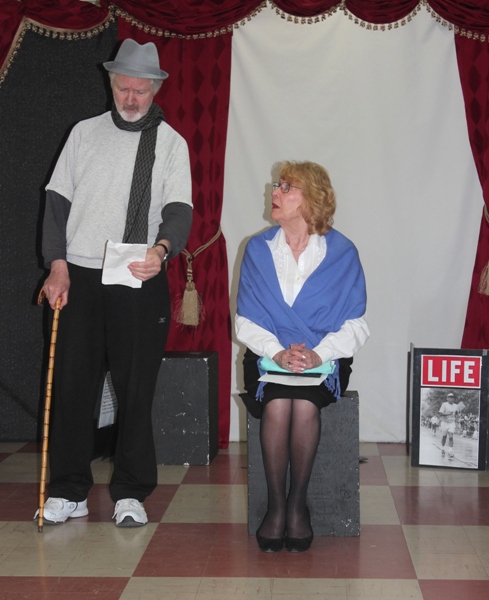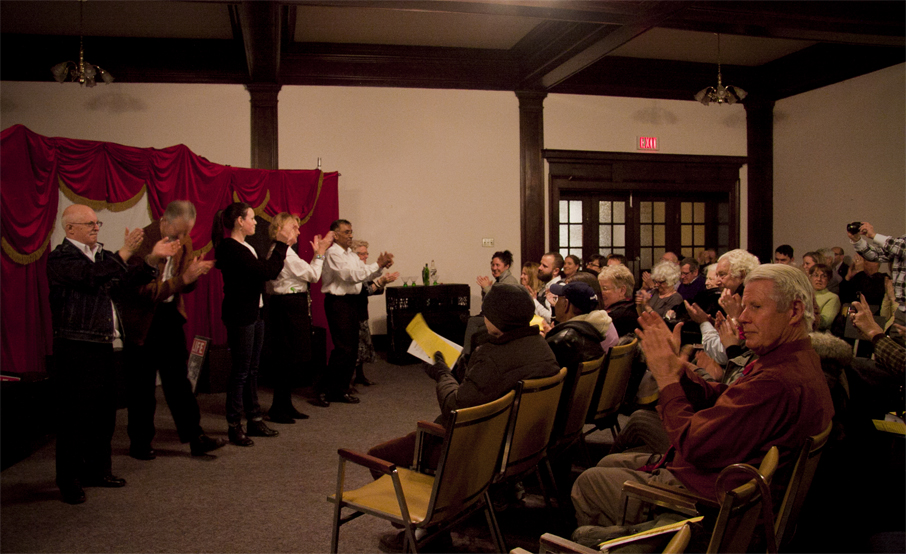On November 25th, I enter the room to the stage reading of our show ‘Out of the Illusion’. I am late, the room isn’t quite full, and I hurriedly catch up with the scene playing out before me on the stage. It is a scenario of a mother and her children. Her children have come home after school and there is little to no food to feed them, her husband is out looking for work, she is apathetic to the situation. In walks the grandmother who is immediately concerned about the lack of food in the house, and the bruises on the childrens’ arms.
The audience watches silently as the mother begins to deflect questions about the origins of the bruises, finally she answers, “Something must have fallen on them.” This is no longer a safe space for these kids, and the grandmother gently suggests having the children stay at her house while the parents sort themselves out and get their house in order. The mother vehemently tries to preserve her right to keeping her children despite being unable to care for and feed them.
This is one of many scenarios played out over the course of the afternoon. We are shown narratives that play out in the household, stories of abuse, neglect, poverty, drug use, bullying and racism. By the time that the last scenario is acted out the audience engagement is at a fever pitch. We as viewers begin to understand that violence within the home is not a simple problem of a single abuser and the abused. It runs much deeper into the new realities that are created which feed the cycle of violence in the home. These ‘realities’ are actually illusions we create to cope with the people that are supposed to love and protect us, but instead are the very ones we need protecting from.
Audience members begin to understand as the show progresses that cycles of violence in the home are not specific to First Nations communities. What is specific to First Nations communities is the all too real reality of far fewer social supports and resources for survivors and victims of abuse. There is a deep rooted stigma around addressing the taboo topic of violence perpetrated by loved ones and family members in the home. As audience members engage with the scenarios to create solutions some of us become uncomfortably aware of our privilege as non-First Nations citizens. Things such as access to food banks and healthy food, validation of human rights, relatively quick response times in moments of crisis or trauma, and access to helpful neighbours are examples of privilege that non-First Nations citizens, especially those living in urban centres, take for granted.
By the end of the show we are overpouring with new insight, renewed energy and confidence to speak up and speak out about injustices in our own lives and the lives of others who may be struggling to be heard. We learn that a solution that may be right for one person may not be right for another. We learn that there are many definitions of community, and that family isn’t always the community of support we need if our abuser lives under the same roof as we do. The show ends, we say our thank yous, we connect, we show our love and support for those that have shared their stories, and we hope that we can follow through with the promises we have made to one another to not remain silent when it comes to protecting ourselves, our loved ones, and others who need support. We promise to do our part in ending cycles of violence for ourselves and others around us.
Photo courtesy of Angela Moritsugu (www.angelamoritsugu.com).




